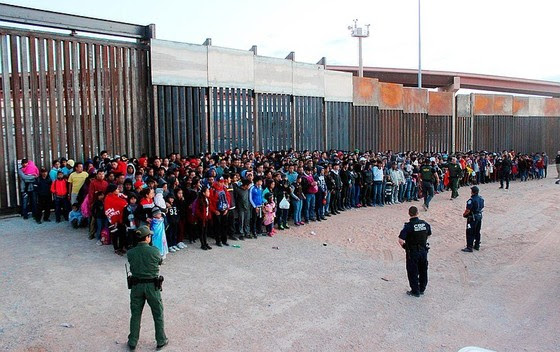The Trump administration recently decided that providing in-court interpretation during initial-phase immigration proceedings represents an unnecessary expense in an already bogged-down system. Migrants will be shown a film explaining legal procedures in a variety of languages but will not be able to ask questions and receive more information on the spot. According to the San Francisco Chronicle, “instead of turning to an in-court interpreter, judges would have to rely on any who happens to be in the building for other purposes, or call a telephone service for on-demand translation that judges say can be woefully inadequate or substantially delayed.” Advocates for immigrants are concerned that this new policy could jeopardize the due process rights of migrants and create confusion, potentially making the system even less efficient.
A report issued in early 2019 by the Center for American Progress stressed the critical role of interpretation services for migrants arriving in the US, particularly those from indigenous communities. The report advocates for language access as a core civil right, noting that “[t]he need for accurate language assistance increases with the importance of the subject, and screenings regarding health, fear of persecution or torture, or vulnerability to trafficking are critical interactions with government agencies. Yet although [the Department of Homeland Security] comes into contact with the broadest range of foreign-language speakers of any federal agency, it lags far behind in providing real-time interpretation for many of the people placed most at risk when their needs are ignored.”
The question of who will provide accurate language services to migrants is important to consider. UCLA scholar Sonya Rao writes that “the immigration law community routinely de-prioritizes professional language services in practice,” calling for volunteer interpreters in times of crisis with little attention paid to their skill or certification. Rao stresses that being bilingual “does not indicate that a person can adequately interpret in a high-stakes, legally complex scenario, especially one involving a vulnerable population that includes traumatized people and very young children.” Indeed, Rao notes, a general misunderstanding of the long training needed to become an accurate and professionalized interpreter “has not only threatened interpreting as a profession but also has generated the exact shortage of interpreters that becomes highly visible in a state of emergency like the family separation crisis.”
 A report compiled after the August 2019 working visit by the Inter-American Commission on Human Rights (IACHR) to the US southern border explicitly addresses the important question of language rights. “The IACHR was able to document that there were not enough translators and interpreters, which hampers the possibility to express oneself in one’s own language, and the capacity to understand administrative and judicial documents and proceedings. Indigenous persons are therefore at a disadvantage… since they lack the interpretation services they need and they lack access to administrative and judicial officials who understand their sociocultural representations and linguistic diversity.” The National Immigrant Justice Center, in its guide for members of Congress who visit Immigration and Customs Enforcement jails, recommends that they ask detainees directly about their ability to communicate with facility staff in their native language and whether they have access to interpreters when necessary.
A report compiled after the August 2019 working visit by the Inter-American Commission on Human Rights (IACHR) to the US southern border explicitly addresses the important question of language rights. “The IACHR was able to document that there were not enough translators and interpreters, which hampers the possibility to express oneself in one’s own language, and the capacity to understand administrative and judicial documents and proceedings. Indigenous persons are therefore at a disadvantage… since they lack the interpretation services they need and they lack access to administrative and judicial officials who understand their sociocultural representations and linguistic diversity.” The National Immigrant Justice Center, in its guide for members of Congress who visit Immigration and Customs Enforcement jails, recommends that they ask detainees directly about their ability to communicate with facility staff in their native language and whether they have access to interpreters when necessary.
A future item in the Spotlight on Language, Culture and Justice series will explore how migrants’ right to interpretation plays out in other geographic zones.
